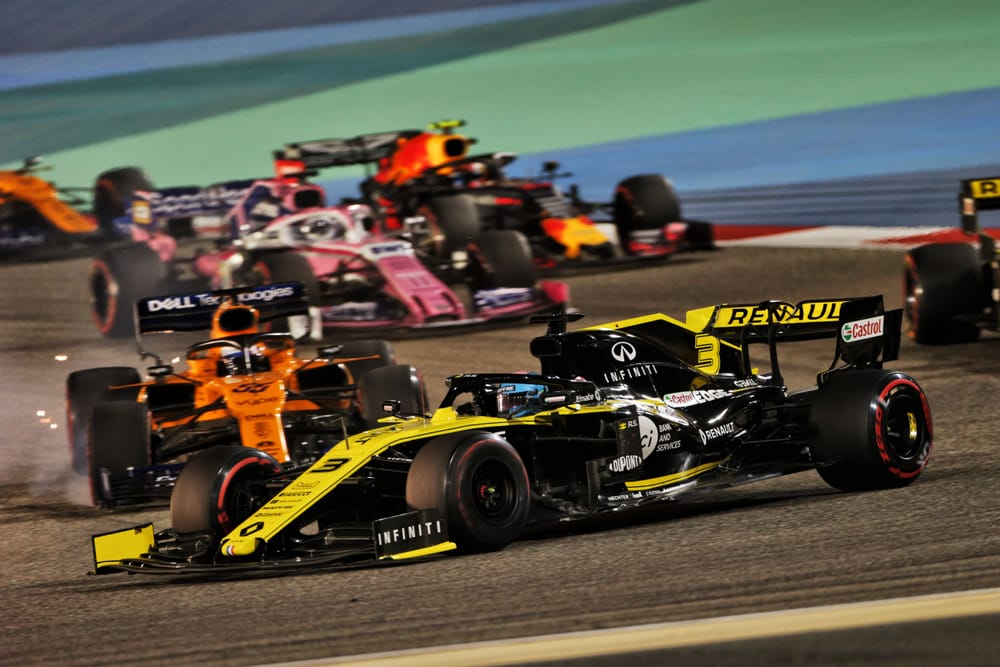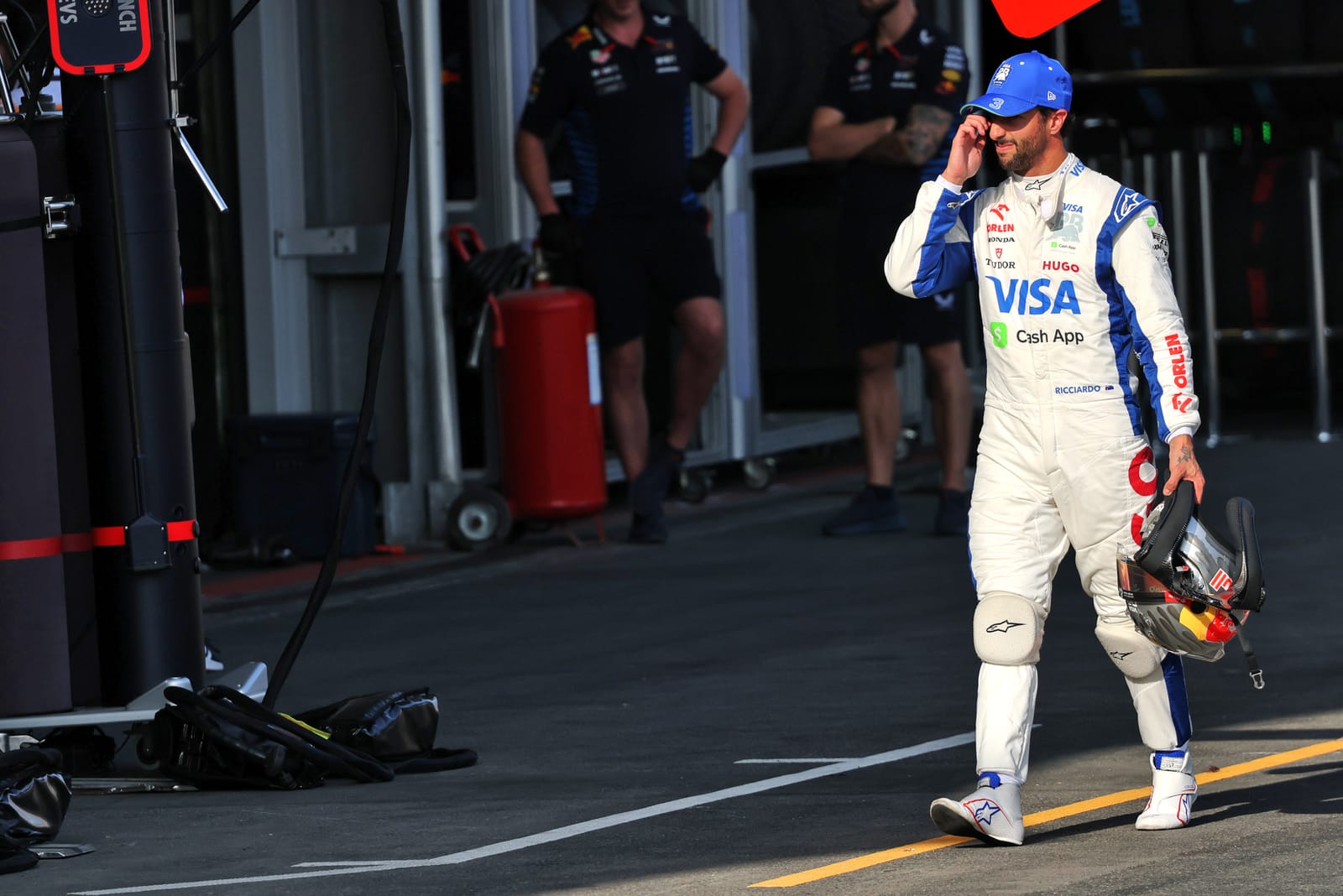Up Next

Daniel Ricciardo's enforced departure from Formula 1 extracts him from the maelstrom of rumours and question marks about his performance - and allows us to take a step back, look at the big picture and reflect on the full breadth of his career.
The question is, how good was he?
The very fact the question and that of his legacy as a grand prix driver are a relevant discussion point is revealing in itself.
The majority of drivers never earn that consideration, simply passing through F1, perhaps grabbing some headlines on the way but never building a sufficiently formidable body of work to warrant such an in-depth evaluation.
But Ricciardo is different and merits far more than the rather simplistic narrative of him being a driver whose career is solely defined by the inflection point of his decision to leave Red Bull for Renault in 2019 and the notion that he's been 'found out' by subsequent performances.
To deconstruct that argument, we must start with it.
DON'T UNDERESTIMATE THE RENAULT YEARS
First impressions count and the early races of his first year with Renault were indeed difficult. But Ricciardo got his head down, understood how to adapt from a Red Bull that would do what he wanted to a Renault that proved somewhat more reluctant, and quickly established himself as the midfield standout in F1.
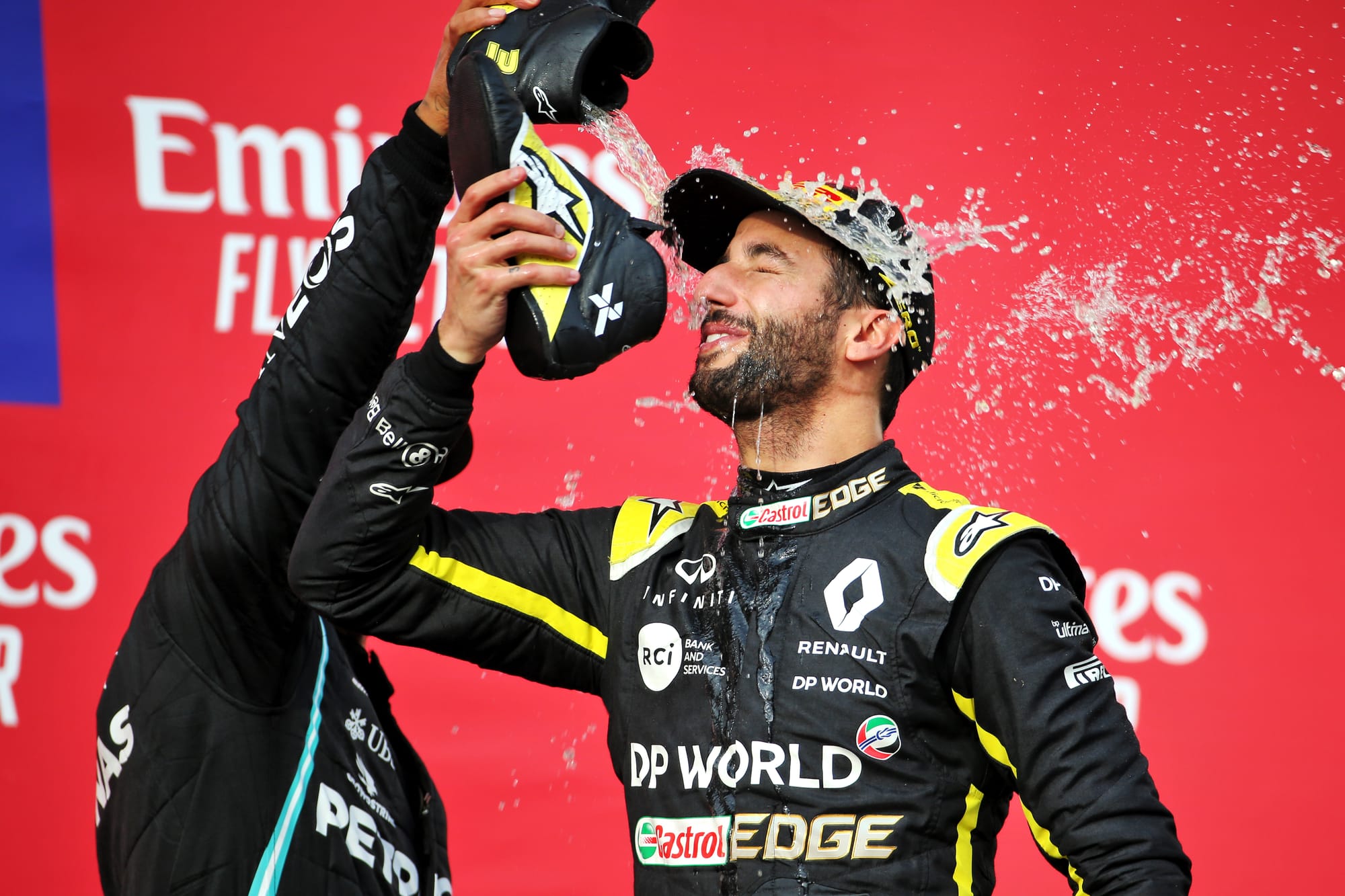
The results - two podium finishes and a lot of 'loose change' points finishes while in yellow-and-black - look like part of the decline when lined up in a table with the rest of his career results, but the performances he produced tell a different story.
In 2019, even in the difficult first half of the season, he produced some Ricciardo magic, notably a stunning lap to qualify sixth at Monaco. The second half of the season was consistently strong, including an anonymous-on-paper run to 14th in a damaged Renault at Spa that he considered among his best work in F1 and four occasions when he headed the midfield pack. He also conclusively outperformed team-mate Nico Hulkenberg.
It was a similar, but more consistent, story in 2020, having the clear edge over new team-mate Esteban Ocon and producing some stellar drivers, notably to third in the Emilia Romagna Grand Prix at Imola. That year, he ranked fourth in The Race's top 10 F1 drivers of the season (listen to our podcast debate about that below).
Few doubted Ricciardo was producing first-rate performances in below-par machinery. The mistake he made, although there was no way for him to realise this at the time, was signing for McLaren to replace Ferrari-bound Carlos Sainz for 2021. What followed was painful.
WHAT MCLAREN MISERY REVEALED
The tricky-to-drive McLaren in 2021 was a car that Andrea Stella, then McLaren's executive director of racing, characterised as responding best to a driving style that Ricciardo was at the "opposite end" to. For slow and medium speed corners, particularly ones of any significant duration, it required the driver to attack the corner hard on the brakes. As Stella said, "he's a driver who likes to roll the speed in the corner and not necessarily attack the braking as much as our car requires".
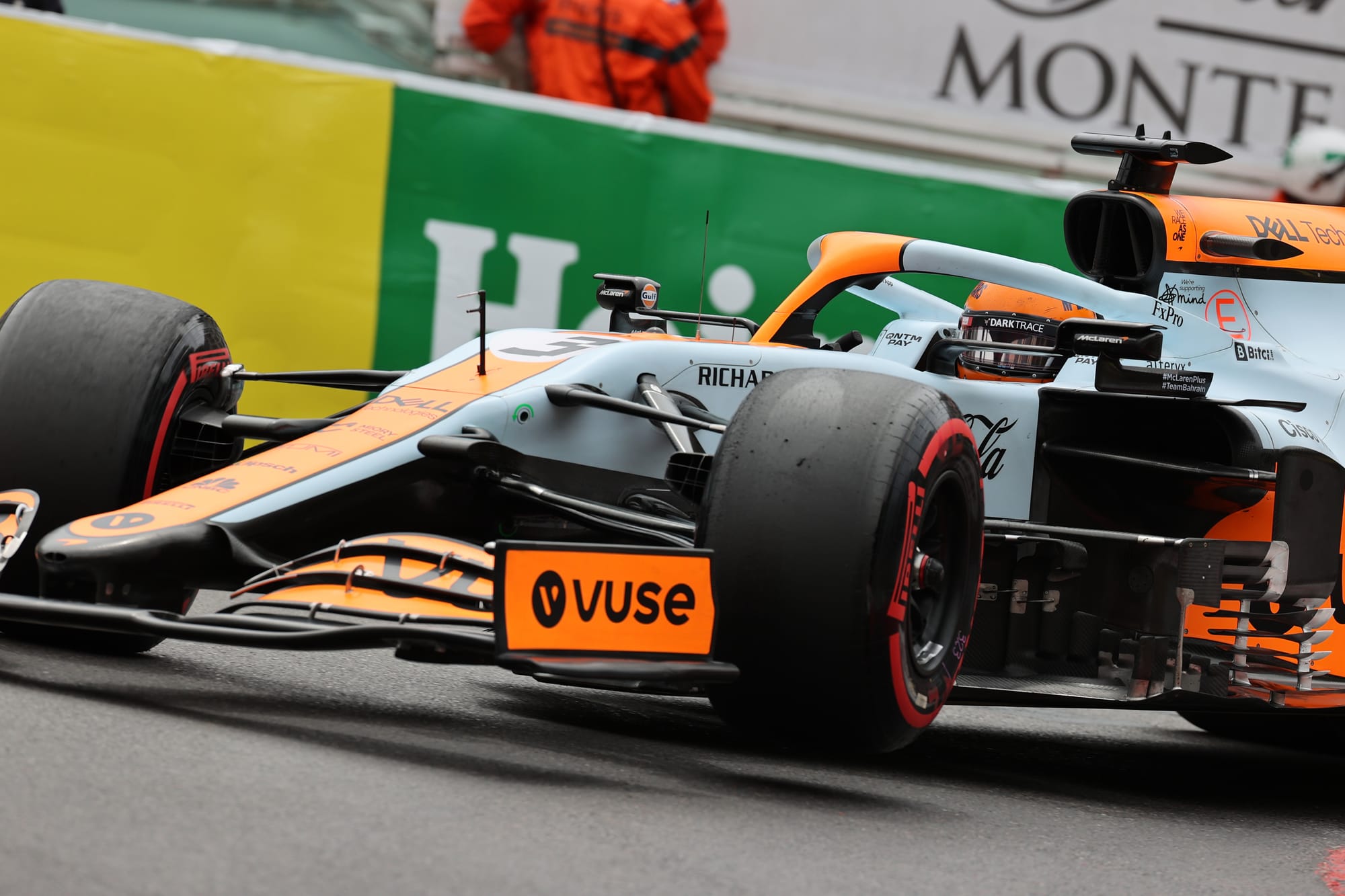
At high-speed tracks, or ones with shorter corners such as Monza - where Ricciardo took a remarkable win - he could do reasonably well, but at other tracks he was all at sea. You can read more about that here.
With a year in the databank and brand new cars for 2022, the assumption was that it would be a better year for Ricciardo. But it wasn't, as he became increasingly lost and frustrated by his inability to adapt his style to suit the cars.
The real problem became clear as while his problems with the 2021 McLaren were more based in its esoteric characteristics, the introduction of the current ground effect cars moved the generic tendencies of F1 cars away from Ricciardo's comfort zone.
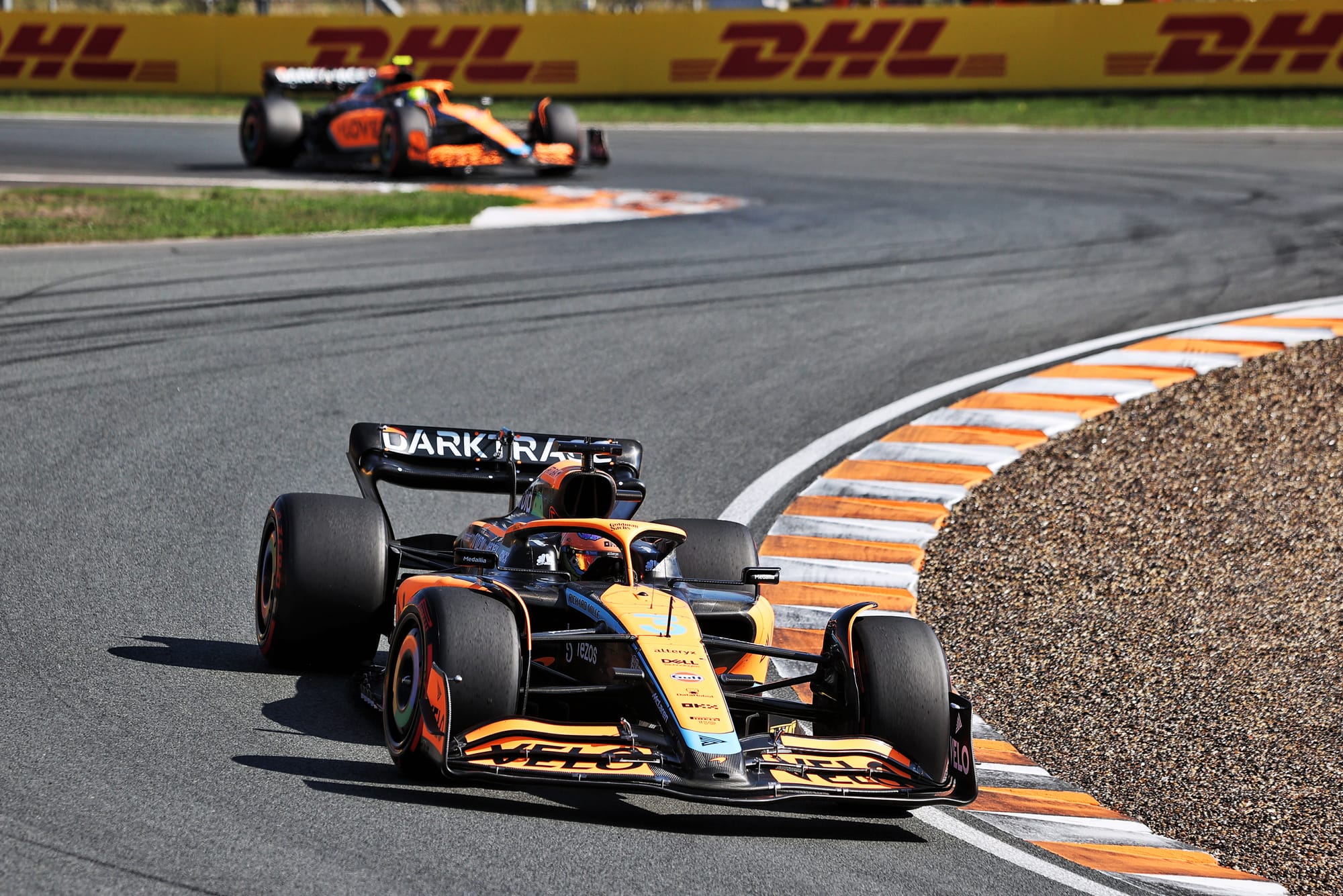
If there's one thing these cars don't like doing, it's turning in when it comes to slower corners. To achieve that, team-mate Lando Norris generally exploited a more unstable rear end, but Ricciardo ended up with a little safety understeer dialled in that often left him under-rotated and effectively driving far 'longer' and slower corners.
He simply could not adapt and lost his way desperately trying to get his head round the demands of the cars and how to tune himself into them.
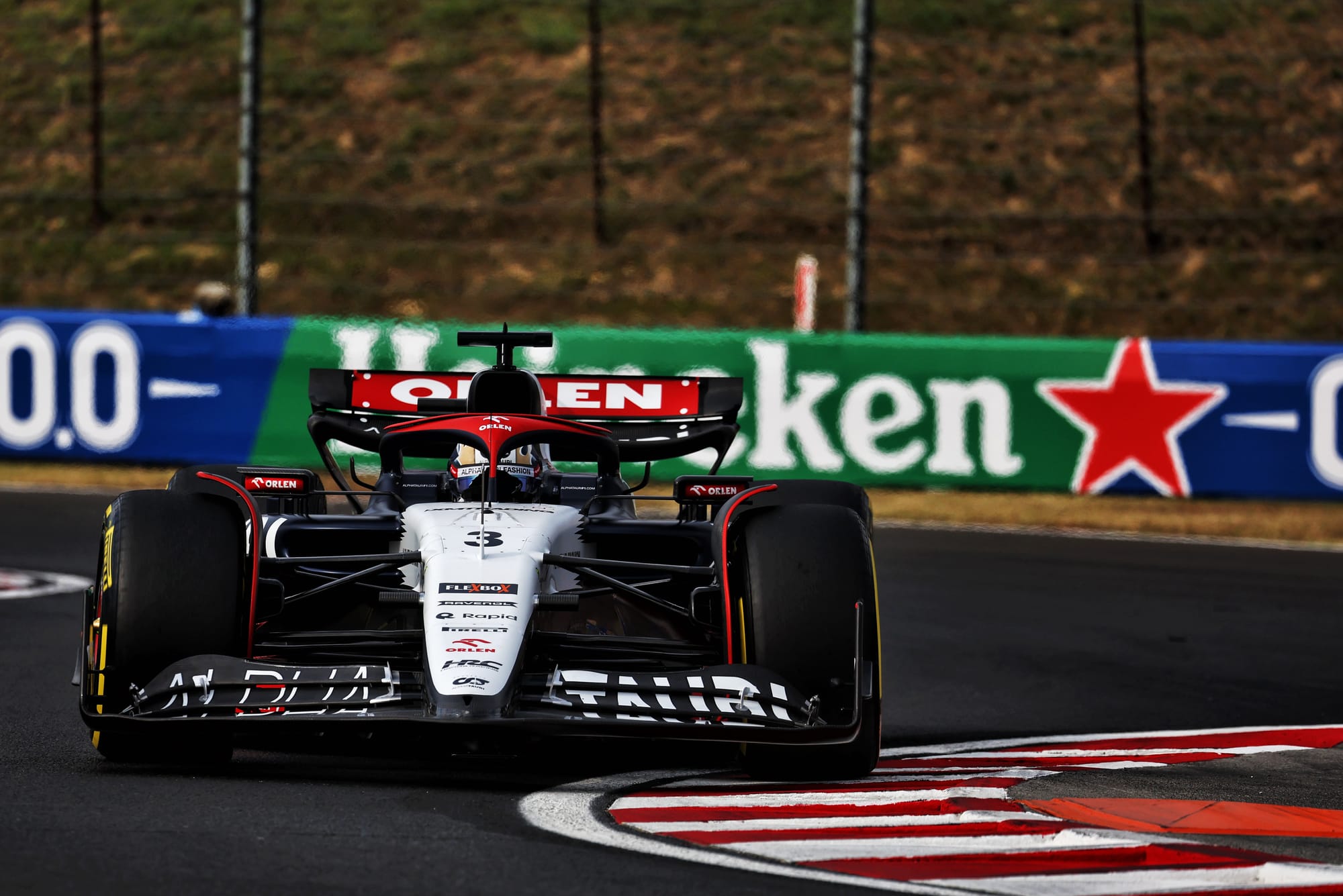
Ricciardo never could. On his return with AlphaTauri in 2023 he initially made some promising progress, helping the team adapt its set-up from one that worked best with late-braking and aggressive turn-in, as favoured by team-mate Yuki Tsunoda and Pierre Gasly, who had led the team so well prior to that year.
But Ricciardo seemed to hit a brick wall. Performances fluctuated, with every corner turned that promised a fresh start inevitably frustrated by a downturn. Ricciardo sought a simpler approach, one that wouldn't leave him lost in the technical intricacies that he couldn't get on top of, and while it worked sometimes, it didn't consistently. His driving was perfectly capable, but no more than that.
The McLaren and RB years exposed Ricciardo's limitations, both technically and in terms of adaptability. What makes the difference between the very good and the truly great - those rare few legendary names - usually is that ability to modify their driving style to a wide range of demands. That means Ricciardo falls into a group that can be considered as the 'number-one-and-a-half', drivers capable of great things when the circumstances are right. And right they were in the earlier years.
THE EARLY SIGNS OF SOMETHING GREAT
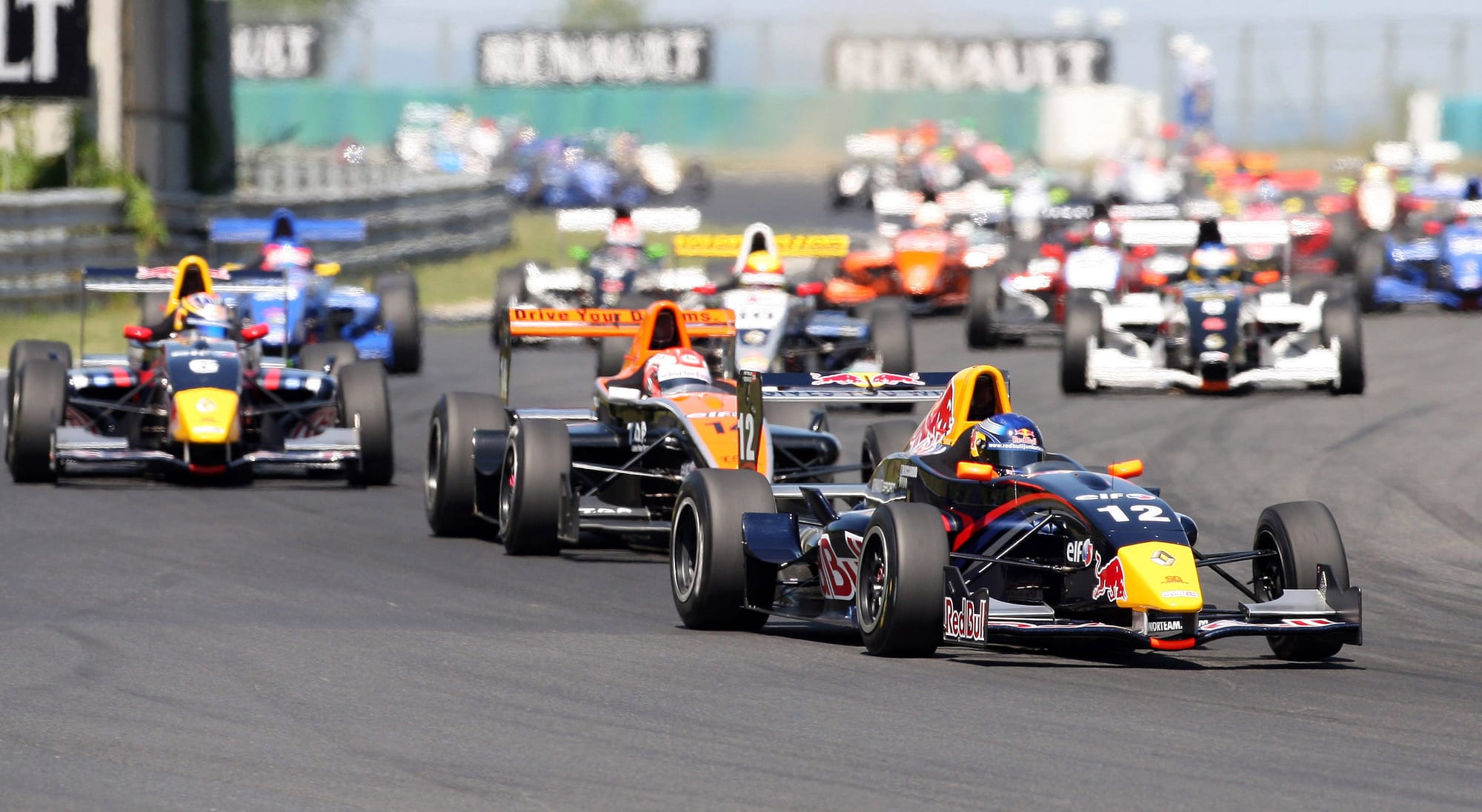
Ricciardo made it to F1 thanks to landing Red Bull backing for 2008 following a test, having shrewdly focused his limited resources on a campaign in Italian Formula Renault in 2007 on the basis that Red Bull and Toyota, two of the few F1 organisations with junior driver schemes, were active there.
Titles followed in Formula Renault 2.0 NEC and then British F3 before he was promoted to F1 with hopeless HRT in the middle of the 2011 season. That was a useful 11-race stint, allowing him to acclimatise to F1 prior to a move to Toro Rosso in 2012.
During his two years there, Ricciardo produced occasional startling performances. The first time he looked like something special was in qualifying sixth for that year's Bahrain Grand Prix, a performance that he said in 2021 remains perhaps the best Saturday showing of his F1 career. Then there was his stoic defence under pressure from the faster, fresher-tyred Michael Schumacher to hold onto 10th place in the closing stages at Suzuka. Those two days in particular were moments when I started to regard Ricciardo as genuine top-team material.
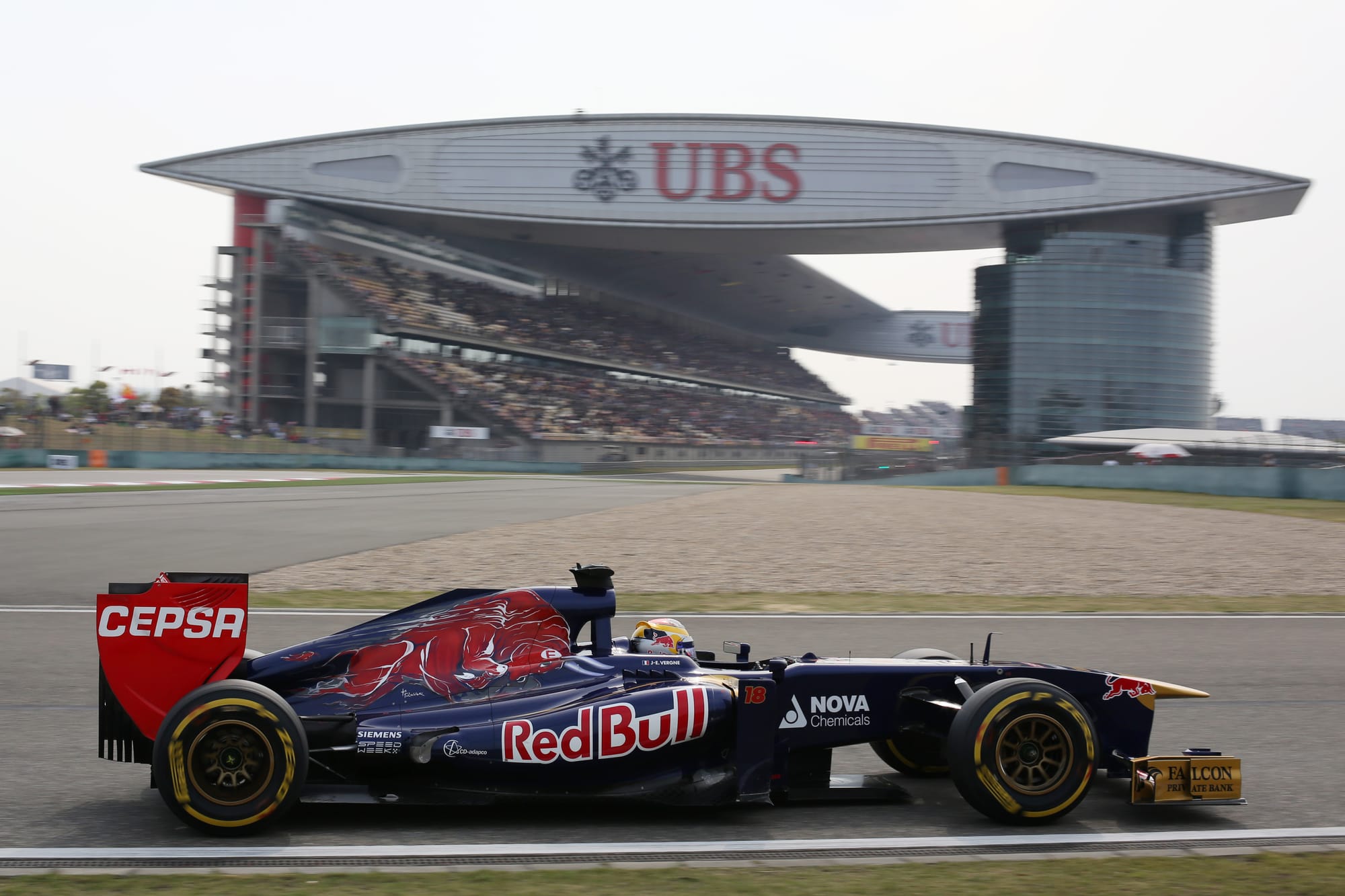
There was more of the same the following season, notably a Chinese Grand Prix weekend where he qualified and finished seventh, then his impressive revival after difficult weekends in Monaco and Canada where team-mate Jean-Eric Vergne excelled.
With promotion to Red Bull Racing in sight thanks to Mark Webber announcing his F1 retirement, Ricciardo rose to the occasion by raising his game. During those two years with Toro Rosso, he outshone Vergne - a very capable driver who also had some impressive moments - with his clear advantage on qualifying pace the key characteristic.
That earned Ricciardo his chance with Red Bull, one he seized ruthlessly. That's not a word that many associate with Ricciardo, but for all his happy-go-lucky character outside the car, he was brutal in it.
TOPPLING VETTEL
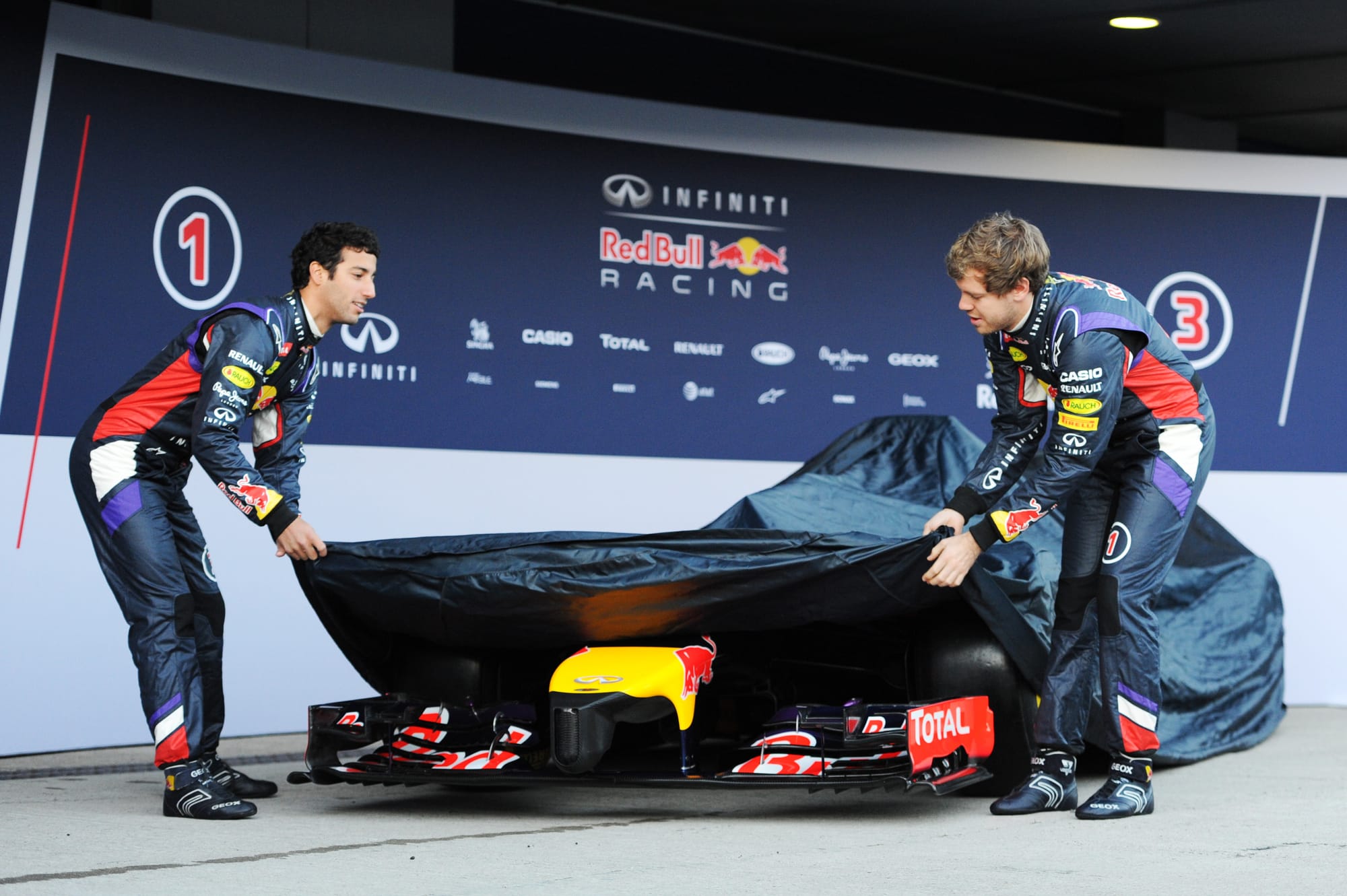
In an interview during 2013 once he'd been signed by Red Bull, I remember him talking up his chances, and stating his intent to beat Vettel - then heading for a fourth straight title. It seemed fanciful, but that's exactly what happened. He won three times in his first year at Red Bull Racing, making the team his own.
The trouble is that while he was outstanding in 2014 - so much so that I ranked him number one in my top 10 drivers of the year for Autosport - the Red Bull wasn't.
Ricciardo won three times, establishing his reputation for brilliant late-braking passes, and outperformed Vettel who struggled with a car that didn't offer him the same confidence as the exhaust-blown machines of previous years did, but the Renault engine wasn't strong enough.
And that story continued in 2015, where he was outscored by new team-mate Daniil Kvyat but comprehensively outperformed him, and in 2016 when he won just once but in a car that was inherently limited by the power unit package. That was Ricciardo's second truly great year. My colleague, Ben Anderson, has written at length on this period of Ricciardo's career.
There's no doubt that during this period, and in 2017, Ricciardo was performing at a level that would have made him a championship threat in the right machinery.
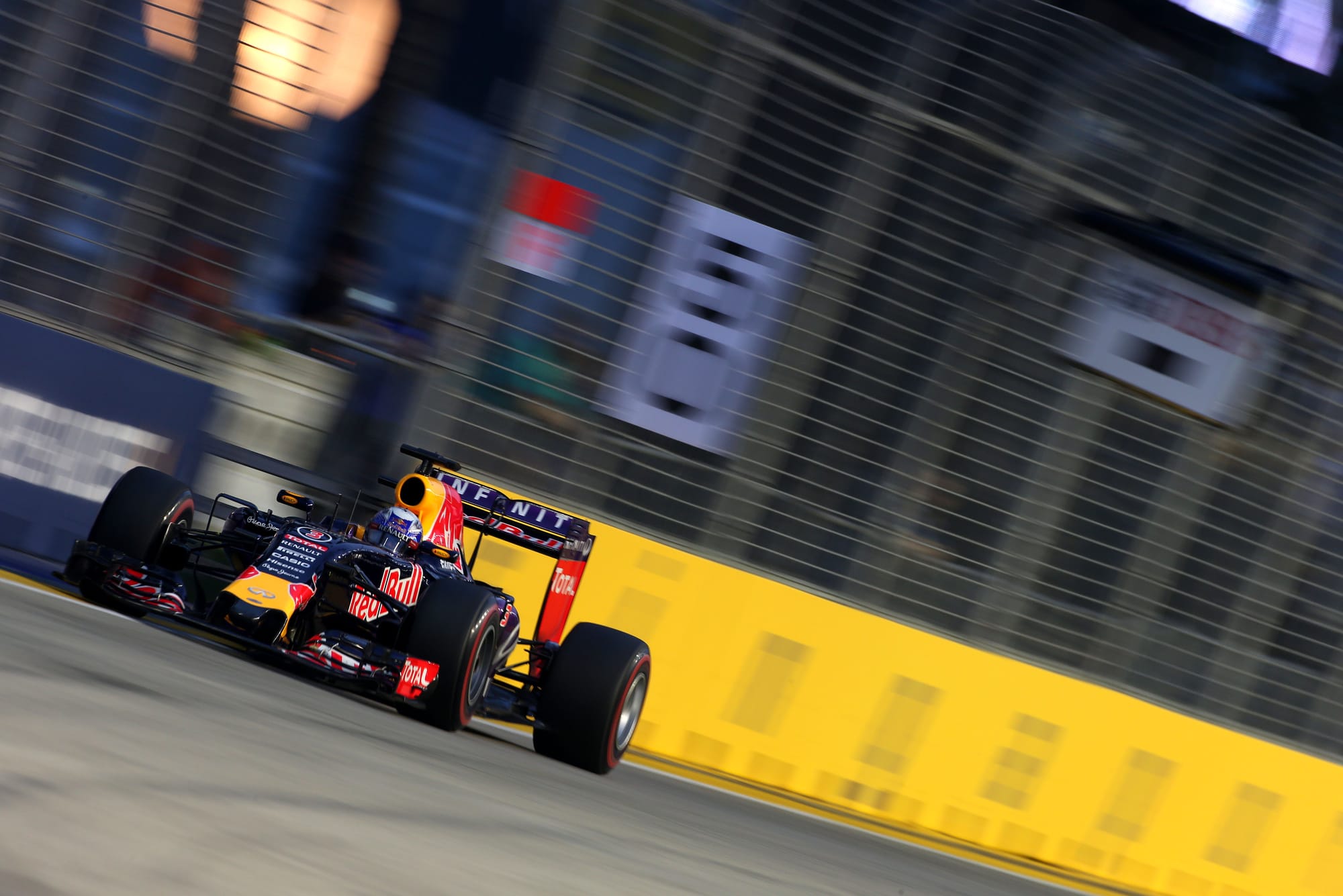
He knew how to get the most out of this generation of cars, contrary to his reputation for overtaking not with a late-braking style but by braking a little earlier and carrying in good speed while achieving the necessary rotation. He'd learned the nuts and bolts of that while at Toro Rosso and it stood him in good stead.
Then came Max Verstappen.
THE TIPPING POINT
Ricciardo put up a good fight, but he could see which way the wind was blowing. He was still performing well in 2018, albeit in a season where Verstappen was getting a decisive edge, but made the sudden decision to jump ship to Renault.
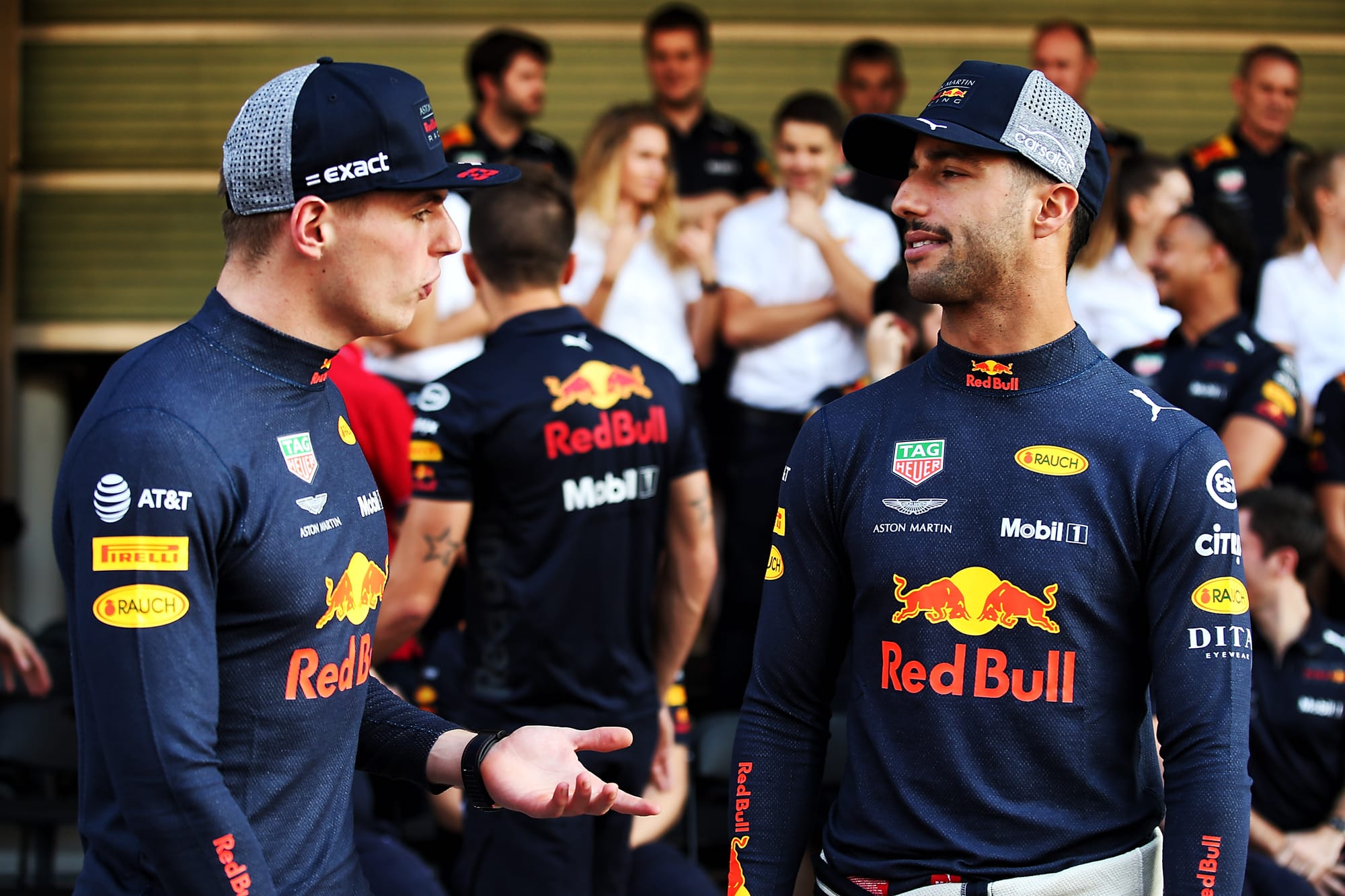
He cited many reasons, including the need for a new challenge and doubts about the Honda engine that was coming for 2019, but realistically the key factor was the rise of Verstappen. Ricciardo wanted to be a team's spearhead, with Renault the only port.
However, even if he hadn't taken that path, there would still have come a point where the 2022 cars arrived and Ricciardo struggled to adapt. The move to McLaren brought forward his struggles, but while nobody could have known it then he was already on a collision course with the prevailing car dynamic conditions in F1. That brutally exposed his limitations and turned a driver who was, at times, great into one who was far patchier.
Some have argued age played a part in this, and it's not impossible, but the sudden shift between 2020 and 2021 and the commonality of the struggles he had in that first McLaren year with the way the cars work thereafter is impossible to ignore.
HOW F1 WILL REMEMBER RICCIARDO
So to come back to the initial question, where does Ricciardo stand? At his best, he was truly brilliant, he just lacked the adaptability to sustain that throughout his whole career.
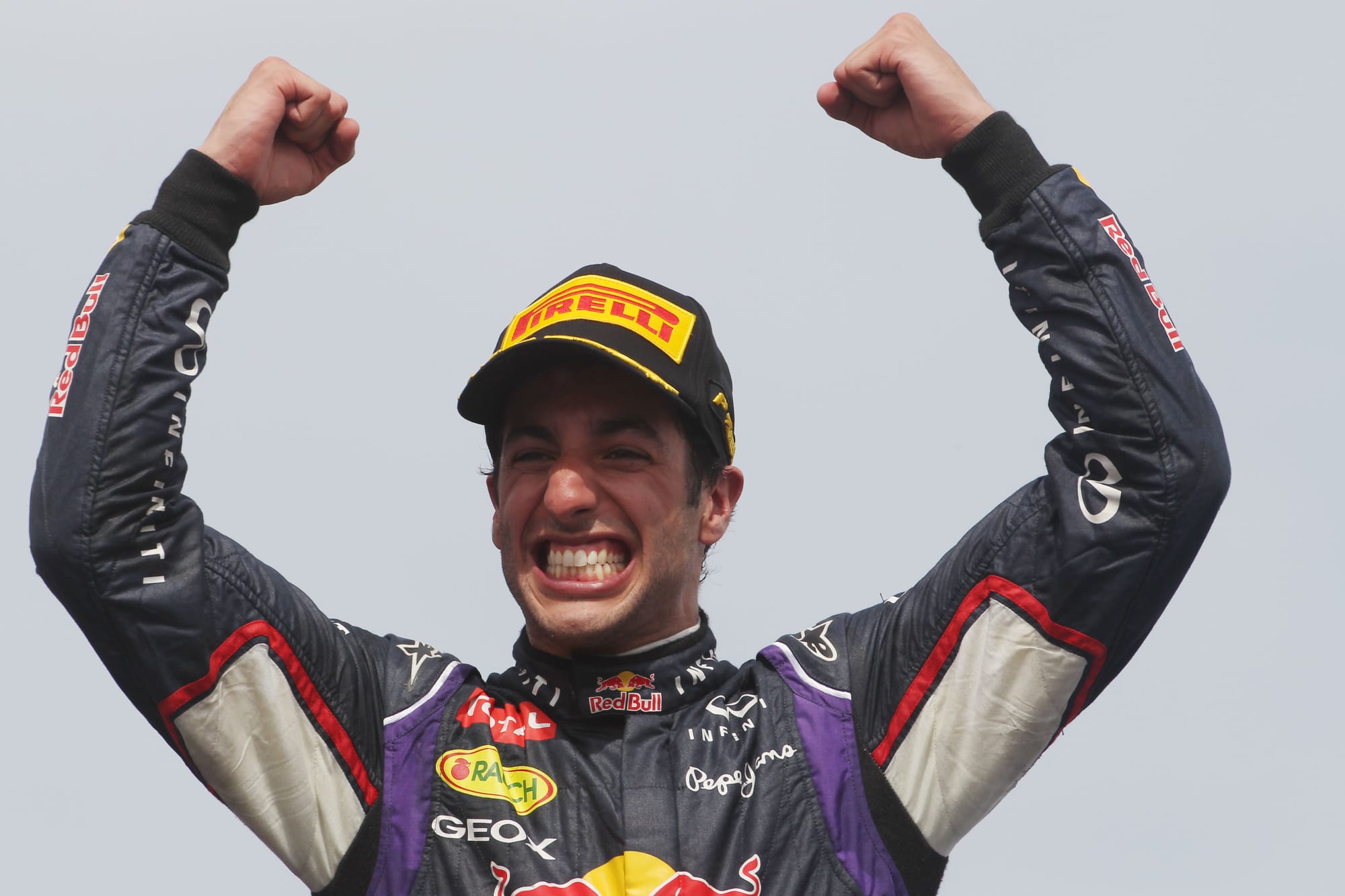
But from 2014-20, he was outstanding and for those seven years he was always among the best drivers in F1, respected by world champions Lewis Hamilton, Fernando Alonso, Verstappen, Vettel and Nico Rosberg. In the right car, or rather with the right engine in that golden period with Red Bull, he had the ability to have joined their ranks as a title-winner.
However, while he could have been a world champion, there's no argument to say that he absolutely should have been. There's no shame in that, it just means you're not Stirling Moss. Ricciardo stands tall among the nearly-men in F1 history, however, a winner of thrilling victories, a great racer, brilliant qualifier and determined character who had an outstanding career.
In doing so, he also conducted himself superbly off track, creating legions of fans and earning the respect not only of his rivals, but also those working in F1. I'd include myself in that number, having had the privilege of tracking his career closely.
Once the recent years of struggles have faded from memory, the Ricciardo I will remember is not the lost soul grasping for what he once had of recent years, but the swashbuckling, great overtaker who was one of the star names of the 2010s.
At his best, he really was right up there, it's just that he didn't quite tick all the boxes that the true, all-time greats do. He was a great driver, but the one nagging disappointment will be that we never saw him tested in his pomp in a world title-winning car against tough competition.
Had he had that opportunity, he might have won the biggest prize. At his best, Ricciardo really was that good.


